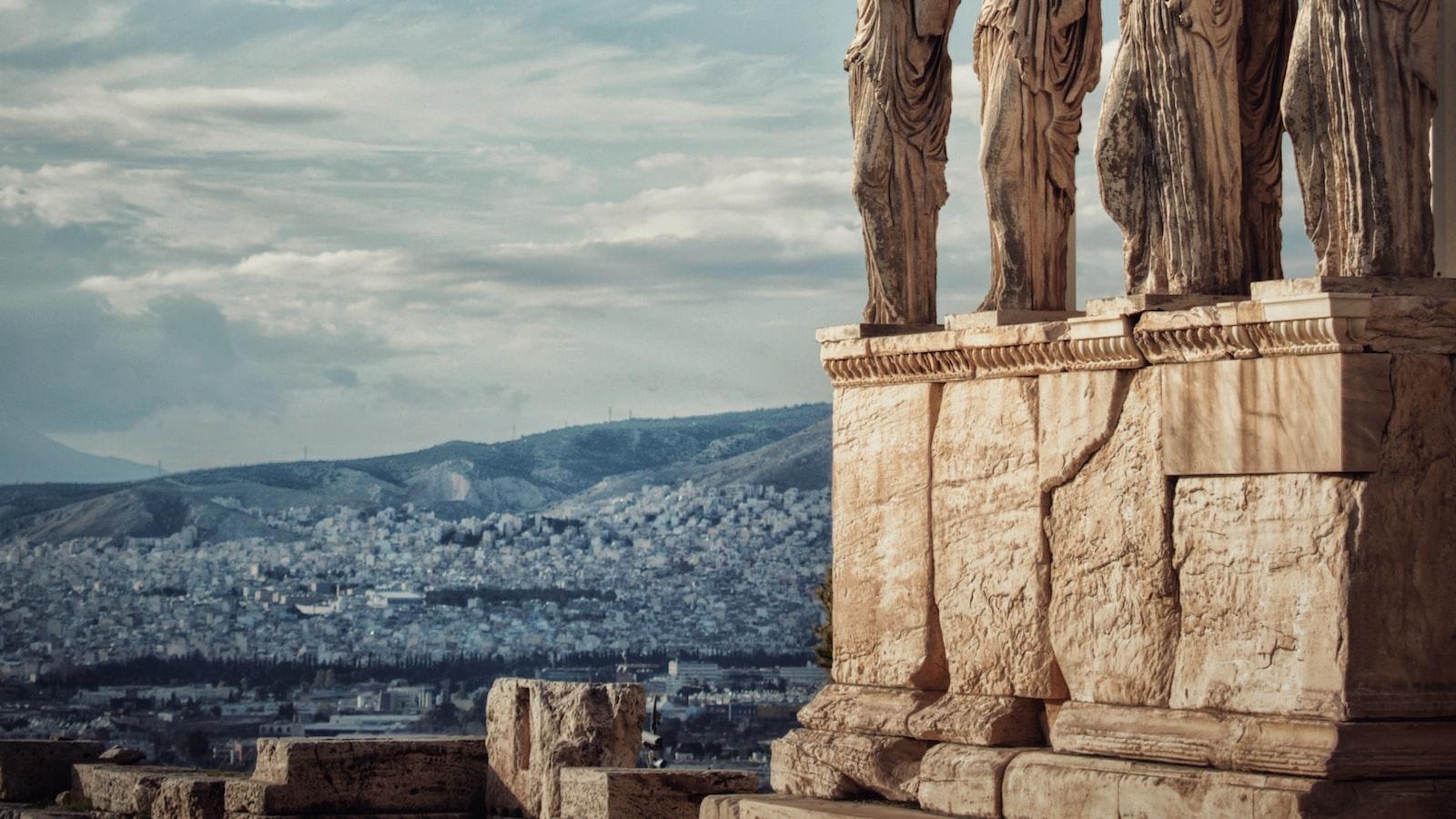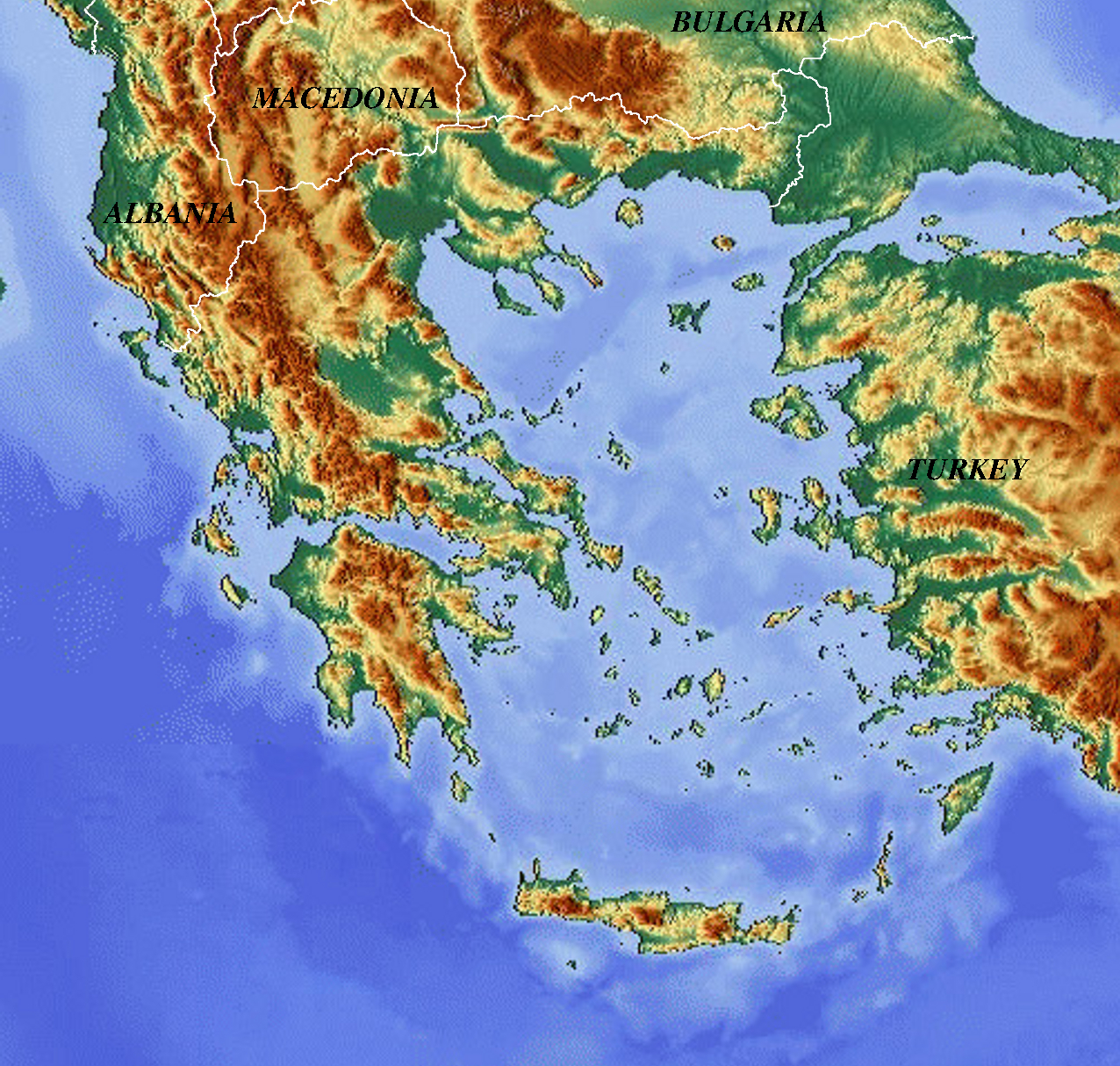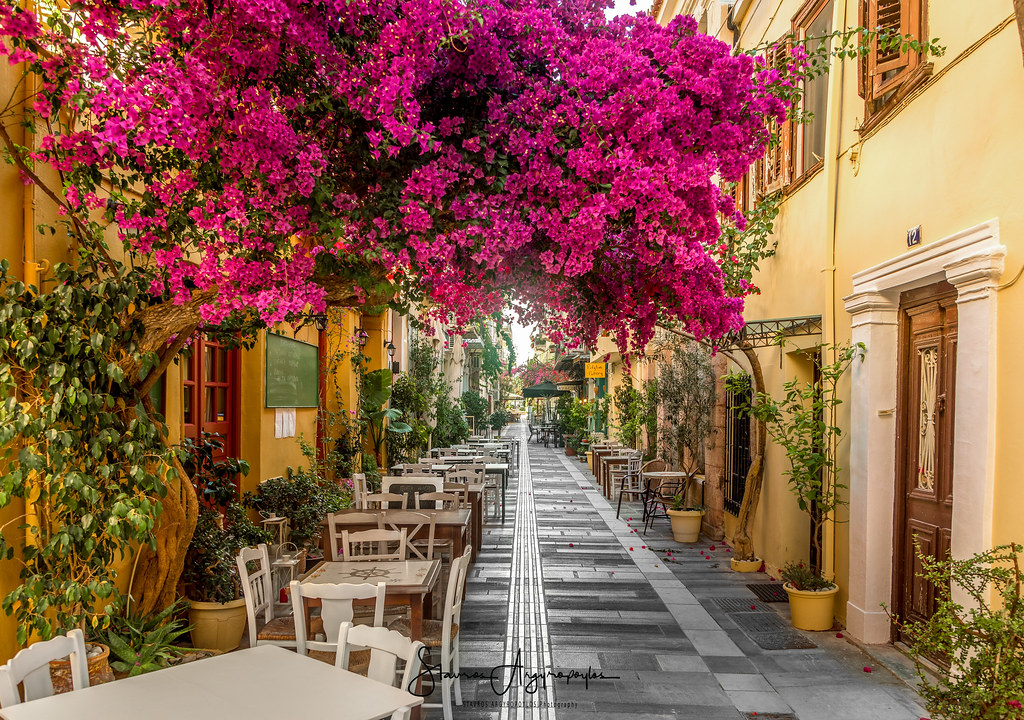In the realm of ancient Greece, a tapestry of divinity and humanity weaved together, forming the intricate fibers of a civilization deeply influenced by the gods and goddesses that governed their lives. Step into this ethereal realm, where Mt. Olympus stood as a beacon of divine power and mortals navigated a labyrinth of religious beliefs. In this article, we embark on a mesmerizing journey through the enigmatic landscapes of ancient Greece, unraveling the multifaceted role of religion and exploring its profound impact on the lives of both gods and mortals alike. Welcome to “Gods, Goddesses, and Mortals: The Role of Religion in Greece”.

The Divine Pantheon of Greek Gods and Goddesses: An Intricate Web of Power and Influence
The ancient Greeks held a deep reverence for their gods and goddesses, believing that they played an integral role in every aspect of their lives. The divine pantheon, consisting of a myriad of deities, formed the very foundation of Greek society, shaping its religious practices, mythology, and cultural customs. From the mighty Zeus, ruler of the gods, to the graceful Athena, goddess of wisdom, the gods and goddesses of ancient Greece wove an intricate web of power and influence that governed the lives of mortals.
Each deity possessed their own unique sphere of influence and characteristics, resulting in a complex tapestry of gods and goddesses that mirrored the rich diversity of human experience. While Zeus presided over thunder and lightning, Poseidon commanded the seas, and Aphrodite ruled over love and beauty. The pantheon offered a sense of order and structure to the Greeks, as they turned to the gods for guidance, protection, and blessings in their daily lives.

Ancient Greek Religion: Unraveling the Sacred Rituals, Practices, and Beliefs
The ancient Greeks held a deep reverence for their gods and goddesses, whose presence shaped every aspect of their lives. These divine beings were believed to possess extraordinary powers and were invoked in various sacred rituals, practices, and festivals. The Greeks believed that their gods and goddesses resided on Mount Olympus, the heavenly abode where they would convene to discuss the affairs of mortals and intervene in worldly matters. This belief in the divine involvement in human affairs reflected the fundamental role that religion played in ancient Greek society.
Worshiping these deities involved a plethora of rituals and practices, which were meticulously followed by the ancient Greeks to ensure divine favor and support. Sacrifices of animals and offerings of food, drink, and precious items were made at temples and sacred sites to gain the attention and blessings of the gods. Festivals and processions were organized in their honor, where priests and priestesses performed ceremonial duties and conducted rituals to seek divine guidance and protection for the community.
Furthermore, the Greeks believed that their gods and goddesses possessed human-like qualities and emotions, making them relatable figures who understood the struggles and desires of mortals. They served as intermediaries between humans and the divine, providing a sense of comfort, guidance, and justice. By engaging in religious practices, the Greeks sought to establish a harmonious relationship with their gods, build stronger communities, and make sense of the world around them.
The ancient Greek religion, with its sacred rituals, practices, and beliefs, formed the very fabric of their society. It influenced their art, literature, politics, and moral code, leaving an indelible mark on Western civilization. Exploring and understanding this rich tapestry of religious traditions allows us to unravel the complexities of ancient Greek culture and gain insights into the intricate relationship between gods, goddesses, and mortals.

Reconnecting with the Ancient Greek Religion: Exploring its Relevance and Lessons for Modern Society

In the mesmerizing land of Ancient Greece, religion permeated every aspect of society, shaping the lives of gods, goddesses, and mortals alike. This extraordinary belief system connected the divine and the earthly, providing a framework for understanding the world and one’s place within it. Even in our modern world, delving into the depths of Ancient Greek religion can offer valuable insights and lessons that continue to resonate today.
One of the most captivating aspects of the ancient Greek religion was the vast pantheon of gods and goddesses that were worshipped. From Zeus, the mighty king of the gods, to Athena, the wise goddess of wisdom, and Aphrodite, the enchanting deity of love and beauty, each god had their own unique qualities and attributes. The timeless stories and myths surrounding these deities remain a captivating source of wisdom and inspiration, encouraging us to explore different aspects of our own human nature.
Moreover, the ancient Greeks believed that their gods and goddesses actively interacted with mortals, influencing various aspects of their lives. This close relationship between gods and humans reminds us to consider the spiritual dimension in our own lives and how it intertwines with the physical world. It teaches us to find meaning in the beauty of nature, to seek guidance and protection in times of adversity, and to appreciate the wonders of life and human connection. By exploring the ancient Greek religion, we can rediscover a sense of wonder, foster a deeper understanding of our own spirituality, and forge a stronger connection to our shared humanity.

Preserving the Legacy: Valuable Recommendations for Celebrating and Studying Greek Mythology in the Contemporary World
The Intersection of Mythology and Religion
As we delve into the rich tapestry of Greek mythology, it is essential to acknowledge the profound role that religion played in shaping the ancient Greek society. The gods and goddesses of Greek mythology were not merely fictional characters, but deities whose presence was deeply felt in the lives of mortals. Religion served as a guiding force, providing a framework for morality, social order, and the understanding of the natural world.
The veneration of the gods was not limited to dedicated temples or religious ceremonies alone. It transcended into the fabric of everyday life, influencing various aspects of Greek culture, such as art, literature, and even politics. The belief in divine intervention acted as a powerful moral compass, keeping individuals accountable for their actions. By studying Greek mythology, we gain valuable insights into the religious beliefs and practices that shaped the lives of ancient Greeks, ultimately helping us appreciate their profound cultural legacy.
Contemporary Reverence for Greek Mythology
The enduring allure of Greek mythology extends far beyond ancient times, captivating the hearts and minds of people in the contemporary world. Today, countless individuals continue to find solace, inspiration, and wisdom in the stories of the ancient gods and goddesses. Greek mythology has transcended its religious origins and evolved into a treasured cultural heritage.
From the captivating tales of heroic deeds to the complex relationships and divine intrigues, Greek mythology offers a mirror through which we can examine the human condition and explore timeless themes such as love, jealousy, and heroism. By studying and celebrating Greek mythology, we not only preserve an invaluable part of our collective history but also unlock a world of imagination, symbolism, and enduring truths that resonate with us even today.
Closing Remarks
As we traverse the ancient land of Greece, dipping our toes into the realms of gods, goddesses, and mortals, we begin to appreciate the profound role that religion played in shaping this extraordinary civilization. From the resplendent temples standing as testaments to divine might, to the humble offerings left at the altars of everyday life, the threads of faith intertwined seamlessly with the fabric of Greek society.
Elevating their deities to a plane almost as tangible as their mortal existence, the Greeks personified virtues, ambitions, and natural forces in vibrant pantheons. Zeus, the king of the gods, stood tall as a symbol of order, justice, and the power of leadership. Meanwhile, Athena, born from Zeus’s own head, emerged as the embodiment of wisdom and strategic warfare.
But the gods were not mere distant entities, untouched by the plight of mortals. No, the gods walked among men, with temples and sanctuaries dotting the landscape, entrusting their sacred dwellings to the devoted hands of priests and priestesses. The fertile valleys of Eleusis came alive each year with the grand celebration of Demeter, the goddess of agricultural abundance, guiding farmers in their quest for bountiful harvests.
Yet, religion in ancient Greece was not solely confined to gods and goddesses. There existed a profound interconnectedness between mortals and the divine, as individuals sought solace, guidance, and even forgiveness in their religious practices. Scattered across the cities, small shrines became conduits for the concerns and hopes of the everyday citizen, offering a sanctuary for personal devotion.
Digging deeper into this tapestry of faith, one cannot ignore the role of oracles, those mysterious vessels through which the gods spoke to humanity. Perhaps the most revered oracle of them all was the Pythia at the Temple of Apollo in Delphi. Prophesies whispered in enigmatic riddles brought both solace and anxiety to those who sought to unravel their true meaning.
As we bid farewell to Greece, a land where religion permeated every facet of existence, we cannot help but marvel at the complex interplay between gods, goddesses, and mortals. The legacy of ancient Greek religion echoes through the ages, leaving an indelible mark on the course of human civilization. And while the gods may no longer walk among us, their stories and teachings continue to guide and inspire, reminding us of the timeless power of faith.

